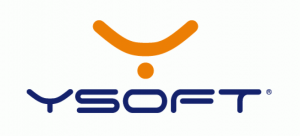Disruptive technology is fast-forwarding us into the future
19.05.2020Company: BNP PARIBAS S.A., pobočka Česká republika
Global lockdowns have accelerated the adoption of new technologies. Senior investment strategist Daniel Morris discusses the trends and opportunities with Pam Hegarty, senior portfolio manager and equity analyst for disruptive technologies in our Boston office.
WHAT ARE THE MAIN TRENDS WITHIN DIGITAL TECHNOLOGY?
Pam: The digitalisation trend has moved forward with a leap, benefiting from the stay-at-home measures to deal with the coronavirus pandemic and the boost these gave to e-commerce, remote working and other tech areas. Last week, Satya Nadella, Microsoft’s chief executive officer, referred to “two years of digital transformation in two months.”
We see several key trends:
- Growing adoption of cloud computing driven by the need for remote working, online entertainment and telemedicine.Other factors include mass notification systems (MNS) and the remote provision of services.In terms of MNS, we have seen more and more governments use them to send emergency communications to one or many groups of people. And with much of the world in lockdown, services providers have been using augmented reality (AR) through customers’ smartphones to identify and troubleshoot problems remotely.
- An acceleration of e-commerce is underway: Visa recently reported that in Latin America, the number of people using Visa credit card online increased by 20% (13 million people) in one quarter.
- Digital payments: Similar to the above, there has been a rapid increase in ‘card not present’ transactions. This is a card transaction, made either online or by phone, where the card is not physically present.
- Uptake of 3D printing: Thanks to its often flexible and local nature, individuals and companies have taken to using 3D printing. As a case in point,Cisco employees have been producing face shields for healthcare workers.
- Automation: In addition to, say, robots in factories, there has been growing interesting in software to automate customer services and other business functions.
WHAT IS YOUR INVESTMENT STRATEGY GOING FORWARD?
Pam: Uncertainty remains, both about the duration of the pandemic and the severity of the recession. Stock markets might be too optimistic about the timing and strength of an economic rebound. Our strategy is to stay focused on our secular growth themes:
- Cloud computing
- Artificial intelligence/data analytics
- Automation
- Internet of Things (IoT)
We aim to maintain a balanced portfolio by owning both defensive positions that could fare well during periods of heightened volatility and companies that have sustainable business models and exposure to long-term secular growth themes, but may face a more challenging short-term outlook.
To this end, we hold slightly higher cash positions at the moment and remain flexible to buying stocks linked to the above themes should their valuations come down due to volatility.
WHERE DO YOU SEE OPPORTUNITIES IN COMING MONTHS?
Pam: The pandemic and resultant economic recession shine a spotlight on societal issues where technology can create solutions:
- Inequality – especially via better access to broadband and financial services and banking.
- Renewable energy – harnessing solar and wind energy to power the data centres behind the cloud.
- Increasing the capacity of the healthcare system cost-effectively – technology can monitor a patient’s health at home while telemedicine can help to treat the sick at home.
There are also industry-specific opportunities:
- Digital twins – for example, companies can maintain a digital representation of their factory lines and other infrastructure to enable remote servicing and predictive maintenance.
- Increased use of automation in business and manufacturing.
- Importance of artificial intelligence and data analysis to predict and manage the spread of infectious diseases.
We have a clear and disciplined approach focusing on the secular growth themes within disruptive technology that will carry our economies and societies into the future.
We are currently going through a period of profound change that offers numerous opportunities for investors to position their investment portfolios for further growth in disruptive technology.
Further reading on disruptive change, innovation and technology:
2019 Investment Forum: Disruptive change in a superstar economy (1/5)
Innovation. It’s not just technology
Also listen to the Market Weekly podcast with Pamela Hegarty, ‘Riding the digital transformation with US equities’.
Any views expressed here are those of the speakers as of the date of publication, are based on available information, and are subject to change without notice. Individual portfolio management teams may hold different views and may take different investment decisions for different clients.
The value of investments and the income they generate may go down as well as up and it is possible that investors will not recover their initial outlay. Past performance is no guarantee for future returns.
Investing in emerging markets, or specialised or restricted sectors is likely to be subject to a higher-than-average volatility due to a high degree of concentration, greater uncertainty because less information is available, there is less liquidity or due to greater sensitivity to changes in market conditions (social, political and economic conditions).
Some emerging markets offer less security than the majority of international developed markets. For this reason, services for portfolio transactions, liquidation and conservation on behalf of funds invested in emerging markets may carry greater risk.
Tags: Finance | IT |







